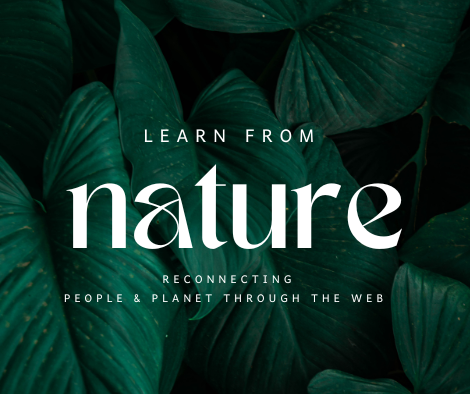
How do we remain healthy and well during particularly challenging times – such as pandemics? A number of studies show that being in or even near natural environments, can help a great deal regarding both our physical health and vital associated mental well-being.
Science Daily…
A study published in Ecological Applications suggests that nature around one’s home may help mitigate some of the negative mental health effects of the COVID-19 pandemic.
An online questionnaire survey completed by 3,000 adults in in Tokyo, Japan, quantified the link between five mental-health outcomes (depression, life satisfaction, subjective happiness, self-esteem, and loneliness) and two measures of nature experiences (frequency of greenspace use and green view through windows from home).
More frequent greenspace use and the existence of green window views from the home were associated with increased levels of self-esteem, life satisfaction, and subjective happiness, as well as decreased levels of depression and loneliness.
“Our results suggest that nearby nature can serve as a buffer in decreasing the adverse impacts of a very stressful event on humans,” said lead author Masashi Soga, PhD, of The University of Tokyo. “Protecting natural environments in urban areas is important not only for the conservation of biodiversity, but also for the protection of human health.” ( source- https://www.sciencedaily.com )
Ecological Society of America…
During this extraordinary time, nature around the home might play a key role in mitigating against the risk of adverse mental health outcomes. This hypothesis stems from growing empirical evidence of the human health and well‐being benefits of direct experiences with nature (Keniger et al. 2013, Russell et al. 2013, Hartig et al. 2014, Soga and Gaston 2016, Bratman et al. 2019). For example, visiting greenspaces is known to increase positive emotions such as life satisfaction, happiness, and self‐esteem (Pretty et al. 2005, MacKerron and Mourato 2013, Ambrey and Fleming 2014) as well as decrease negative emotions such as depression, anxiety, and stress (Roe et al. 2013, Shanahan et al. 2016). Indeed, recent studies reported that people’s use of urban greenspaces (e.g., parks, forests) has increased substantially after the COVID‐19 pandemic (e.g.. Derks et al. 2020, Venter et al. 2020), suggesting that these environments can serve as important health resources for urban residents (Slater 2020). It remains unknown, however, how proximity to nature contributes to mental health patterns during a times of crises such as the COVID‐19 pandemic. Knowledge gained in this area has the potential to inform the development of public health policies aimed at improving health of a population.
( source- https://esajournals.onlinelibrary.wiley.com )
The Conversation…
The benefits of nature
Greater contact between humans and their environment has been one of the most important responses to the pandemic, from a mental health perspective.
“Many of us who have been fortunate enough to live in areas where lockdown restrictions still permitted outdoor activities turned to walking and exercising outdoors and enjoying the beauty of rivers, urban green spaces and forests, all the while adhering to the prescribed regulations on physical distance and group size.
As we respond to the pandemic, the draw of such spaces for improving well-being cannot be overlooked. Science has long established that access to urban green areas such as parks and lakes has positive impacts on health, typically due to improved air quality, increased physical activity, social cohesion, and stress reduction. It has also been show that interaction with nature helps us to better recover from stress. “
All of this begs the question- if we are looking to our natural environment for physical and mental health, how is that same natural environment itself doing?
New Zealand…

NGOs urge a green COVID-19 recovery
Environmental groups from across New Zealand have written to the Prime Minister urging the Government to restore Aotearoa in the economic recovery after lockdown.
Forest & Bird, Greenpeace, WWF-New Zealand, Generation Zero, EDS and Ecologic sent the letter to Jacinda Ardern calling on the Government to transform the New Zealand economy to tackle climate change, save native species, improve freshwater quality, and restore our oceans. The government is, I would urge, doing much – details in a future post.
( source- https://www.forestandbird.org.nz/resources/sustainable-recovery-covid-19 )

Worldwide…
The IUCN ( World Conservation Union ) reports thus :
Many of the threats facing biodiversity and protected areas will be exacerbated during, and following, the Covid-19 outbreak. The health of humans, animals and ecosystems are interconnected.
This global pandemic will have both immediate and longer-term effects on protected and conserved areas. The pandemic has already resulted in the closure of parks and protected areas in many countries, resulting in ( edited list ):
- Park staff being sent home. Because staffing levels are key to protected area effectiveness, this can have serious impacts on conservation of key habitats and species.
- Closure of protected areas to people for tourism and recreation. For example, World Heritage sites have been completely closed to visitation in 72 percent of the 167 countries with listed sites, though anti-poaching patrols, monitoring and emergency interventions continue.
- Reduced revenue from tourism and cuts in park operational budgets.
- Suspension of ranger patrols is widespread in some parts of the world, with the resulting possibility of environmentally-damaging activities, including agricultural encroachment, illegal logging and poaching. There are already emerging reports of increased poaching and illegal resource extraction in many countries.
As nations emerge from the lockdown phase there will be additional challenges for protected areas: a global economic depression, job losses, reallocation of government budgets to priorities such as health and social care needs, changing personal views on international travel, but hopefully, also, greater appreciation of nature and the importance of conservation and protected areas. There will be challenges associated with reopening parks and other natural spaces though there is growing recognition of how important access to nature is to human physical and mental health. ( source- https://www.iucn.org/news/world-commission-protected-areas/202005/conserving-nature-a-time-crisis-protected-areas-and-covid-19 )

